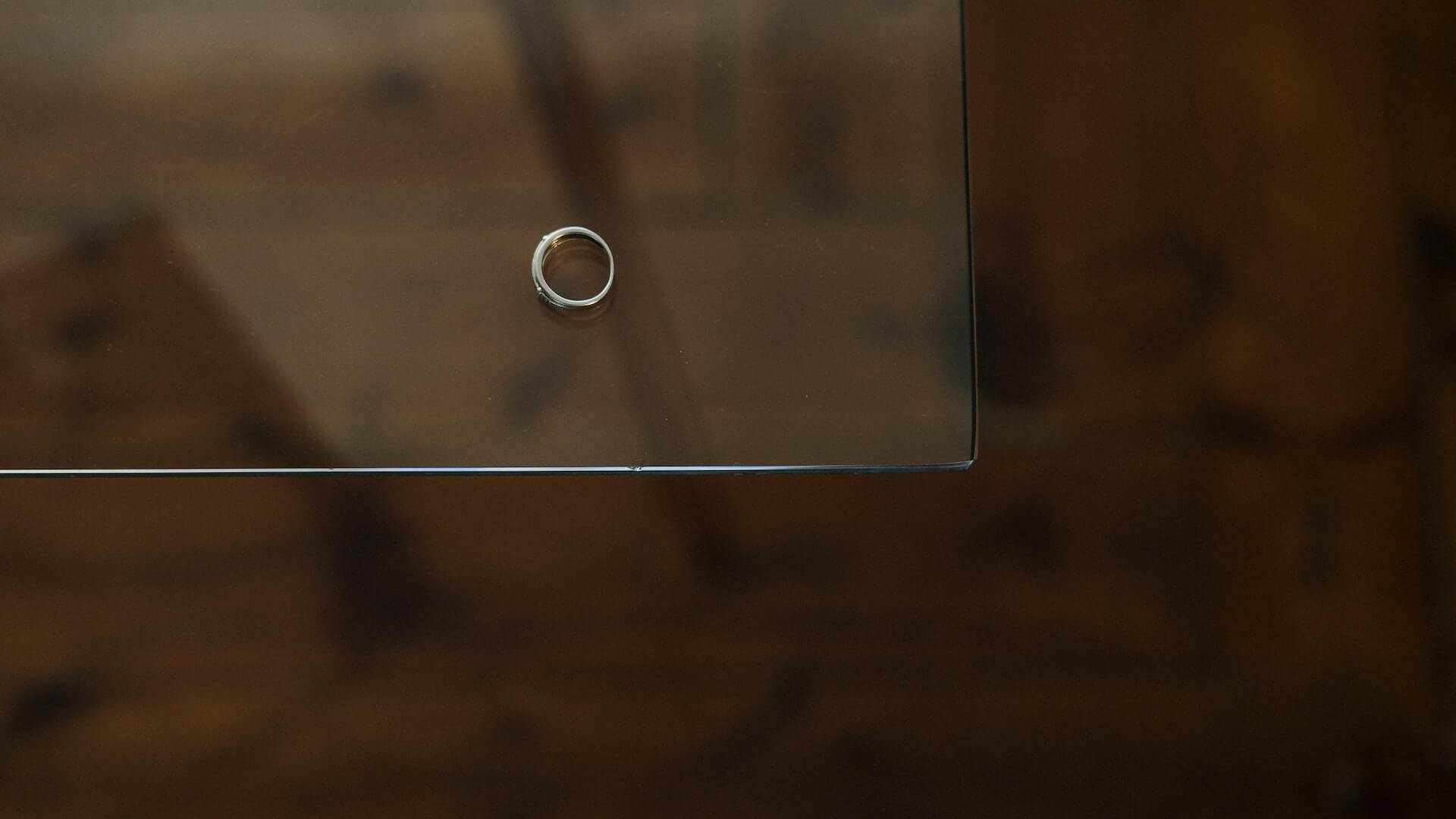Divorce is a difficult and emotionally challenging process that can leave you feeling lost, helpless, and alone. But it doesn’t have to be that way. While navigating divorce can be tough, it can also be an opportunity for healing and growth. It’s important to acknowledge your feelings, take the time to grieve, and then focus on moving forward. In this post, we’re going to explore some tips and strategies to help you find healing and growth during this difficult time. From seeking support and redefining your identity to practicing self-care and finding new hobbies, we’ll cover all the bases to help you navigate divorce with strength, grace, and a positive outlook. So, whether you’re in the midst of a divorce or just looking to heal and grow from a past one, read on to discover how you can turn this challenging experience into an opportunity for personal growth and transformation.
Introduction: The emotional journey of divorce
Divorce is a deeply personal and emotionally challenging experience that can shake the foundation of one’s life. It is a journey that encompasses a wide range of emotions, from shock and disbelief to anger, sadness, and even relief. The emotional rollercoaster that accompanies divorce can feel overwhelming and consuming, leaving individuals feeling lost and unsure of how to navigate through the complexities of this transition.

The end of a marriage signifies the death of a shared dream and the beginning of a new chapter filled with uncertainties. It is a time of grieving the loss of a relationship, the dissolution of a partnership, and the vision of a future that once seemed certain. It is normal to feel a profound sense of sadness, confusion, and fear during this period. Emotions may fluctuate from day to day, or even hour to hour, as individuals grapple with the profound changes taking place in their lives.
During this emotional journey, it is important to acknowledge and honor the range of feelings that arise. It is natural to experience anger towards a former partner, resentment for unfulfilled expectations, and regret for choices made. It is equally important to give oneself permission to grieve the loss and process the emotions that come with it. Suppressing or ignoring these feelings can hinder the healing process and prolong the journey towards growth and recovery.
Finding healing and growth amidst the emotional turmoil of divorce is possible. It requires patience, self-compassion, and a willingness to confront the pain head-on. It may seem daunting at first, but by embracing the emotional journey and seeking support, individuals can begin to rebuild their lives and find a renewed sense of purpose and happiness.
Acknowledge your emotions and give yourself time to grieve
Divorce can be an incredibly challenging and emotionally draining experience, and it is completely normal to feel a wide range of emotions such as sadness, anger, confusion, and even relief.
Take the time to sit with these emotions and understand that they are a natural part of the healing process. It is essential to give yourself permission to feel and express these emotions in a healthy way. This might involve talking to a trusted friend or family member, seeking support from a therapist or counselor, or finding solace in creative outlets like journaling or art.
Remember that healing is not a linear process, and it is okay to have good days and bad days. Be patient and kind to yourself as you navigate this difficult journey. Allow yourself the space and time to grieve the loss of the relationship and the future you had envisioned.
Seek support from friends, family, or a therapist
Going through a divorce can be an emotionally challenging and overwhelming experience. It’s important to remember that you don’t have to face it alone. Seeking support from friends, family, or a therapist can be immensely helpful in finding healing and growth during this difficult time.
Friends and family can provide a strong support system, offering a listening ear, empathy, and understanding. They can be a source of comfort and encouragement, reminding you that you are not alone in this journey. They can also provide practical assistance, whether it’s helping with household chores, childcare, or simply spending quality time together to distract from the pain.
In addition to friends and family, a therapist can offer professional guidance and support. They are trained to help individuals navigate the complex emotions and challenges that come with divorce. A therapist can provide a safe and non-judgmental space for you to express your feelings, process your thoughts, and gain valuable insights into your situation. They can also offer coping strategies, tools for managing stress, and help you develop a roadmap for healing and personal growth.
Take care of your physical and mental health
Divorce can take a toll on your overall health, so taking steps to care for yourself is essential for finding healing and growth.

Firstly, ensure that you are maintaining a healthy lifestyle by eating nutritious meals, staying hydrated, and getting regular exercise. Engaging in physical activity not only helps to relieve stress but also releases endorphins, which can boost your mood and overall well-being. Consider incorporating activities such as walking, yoga, or swimming into your routine to promote physical and mental wellness.
In addition to taking care of your physical health, it is equally important to prioritize your mental and emotional well-being. Going through a divorce can be incredibly emotionally draining, so seeking professional support from a therapist or counselor can be immensely beneficial. They can provide guidance, offer coping mechanisms, and help you navigate the complex emotions that arise during this time. Surrounding yourself with a strong support system of friends and family who can offer a listening ear and provide emotional support is also invaluable.
Taking time for self-reflection and engaging in activities that bring you joy and relaxation can aid in the healing process. This may include practicing mindfulness or meditation, journaling, pursuing hobbies, or engaging in creative outlets. Exploring new interests and setting personal goals can help you shift your focus towards personal growth and rebuilding your life after divorce.
Rediscover your passions and hobbies
When you are in a committed relationship, it’s common for your interests and hobbies to become intertwined with your partner’s. However, now that you are navigating the journey of divorce, it’s the perfect time to reconnect with the activities that bring you joy and fulfillment.
Think back to what you loved doing before your relationship or what you always wanted to try but never had the chance. Whether it’s painting, playing a musical instrument, writing, gardening, cooking, or hiking, engaging in activities that spark your passion can help you regain a sense of purpose and identity.
Not only will rediscovering your passions and hobbies provide a distraction from the pain and stress of divorce, but it will also give you a sense of accomplishment and personal growth. It allows you to focus on yourself and your own happiness, which is crucial during this healing process.
Additionally, immersing yourself in activities that you love can be a great way to meet new people and expand your social circle. Join a local community group or take a class related to your chosen hobby. This will not only provide you with an opportunity to engage in something you enjoy but also allow you to connect with like-minded individuals who share your interests.
Set boundaries and practice self-care during the divorce process
Setting boundaries means creating guidelines for yourself and communicating them to others involved in the divorce process. This could include setting limits on the amount of time spent discussing the divorce, establishing boundaries around personal space, or even limiting contact with toxic or negative individuals. By doing so, you will create a safe and healthy environment for yourself, allowing you to focus on your healing journey.
In addition to setting boundaries, practicing self-care is vital in order to maintain physical, emotional, and mental well-being. Divorce can be physically and mentally draining, so it is important to prioritize self-care activities that nourish and rejuvenate you. This could include engaging in regular exercise, seeking therapy or counseling, practicing mindfulness and meditation, or indulging in activities that bring you joy and relaxation.
Remember, self-care looks different for everyone, so it is important to identify what truly helps you recharge and find solace. By prioritizing self-care, you are giving yourself the care and attention you deserve during this challenging time.
Embrace change and adapt to a new normal
Change is an inevitable part of life, and divorce brings about significant changes in almost every aspect of our lives – our living arrangements, financial situation, social circle, and even our own identity. It’s essential to acknowledge that this is a time of transition and that it’s okay to feel uncertain or overwhelmed. By embracing change, we open ourselves up to new possibilities and opportunities for personal growth.
Adapting to a new normal requires a willingness to let go of what was and to embrace what is. It’s essential to be patient with ourselves as we navigate through this journey. We may find comfort in establishing new routines, exploring new hobbies, or connecting with a support network of friends, family, or professionals who can provide guidance and understanding.
It’s important to remember that healing and growth are not linear processes. There will be good days and bad days, moments of progress and setbacks. Embracing change means being adaptable and allowing ourselves the space to grieve, heal, and rediscover who we are as individuals.
As we adapt to this new normal, it’s important to focus on self-care and self-compassion. Taking care of our physical, emotional, and mental well-being becomes paramount during this time. This may involve seeking therapy, engaging in mindfulness practices, or pursuing activities that bring us joy and fulfillment.
Practice forgiveness and let go of resentment
Forgiveness does not mean forgetting or condoning the actions that led to the divorce. Instead, it is a conscious choice to release the negative energy associated with the past and free yourself from the emotional burden. By forgiving, you are giving yourself permission to heal and move forward.

One powerful aspect of forgiveness is that it allows you to reclaim your own power and control over your emotions. Holding onto resentment only keeps you tied to the pain and prevents you from fully embracing the opportunities for growth and personal development that come with this new chapter of your life.
Letting go of resentment also enables you to focus on your own well-being and happiness. It allows you to shift your energy towards positive aspects of life and open yourself up to new experiences and relationships. By releasing the weight of resentment, you create space for personal growth, self-discovery, and the potential for a brighter future.
Practicing forgiveness is a process that takes time and self-reflection. It may involve seeking therapy or counseling to help navigate the complex emotions that arise during a divorce. Additionally, finding healthy outlets for expressing and processing your feelings, such as journaling, meditation, or engaging in creative activities, can be incredibly beneficial.
Moving forward: Creating a vision for your future post-divorce
Moving forward after a divorce can be a daunting task, but it is essential to create a vision for your future that allows for healing and growth. This is a time to rediscover yourself, redefine your priorities, and pave a new path towards a brighter future.
To begin, take some time for self-reflection. Consider what truly matters to you and what you want to achieve in your life. This is an opportunity to set new goals and aspirations that are aligned with your personal values and desires. Think about the things that bring you joy, fulfillment, and a sense of purpose. Visualize what your ideal life looks like and what steps you need to take to get there.
Creating a vision board can be a powerful tool in this process. Gather images, quotes, and words that resonate with the vision you have for your future. Arrange them on a board or a digital collage, representing the life you want to create post-divorce. This visual representation can serve as a daily reminder of your goals and dreams, and it can help you stay focused and motivated during challenging times.
Additionally, seek support from trusted friends, family, or even a therapist. Surround yourself with positive influences who can provide encouragement, guidance, and a listening ear. Sharing your vision with others can help solidify your commitment to it and open up opportunities for collaboration and support.
Remember, creating a vision for your future post-divorce is not about forgetting or erasing the past. It is about acknowledging your pain, learning from your experiences, and using them as stepping stones towards personal growth and fulfillment. Embrace the opportunity to rediscover yourself, explore new passions, and pave a new path that aligns with your values and aspirations.
Conclusion
Going through a divorce can be an incredibly challenging and emotional experience, but it is also an opportunity for healing and growth. By following the steps outlined in this article, you can begin to find your way towards healing and start embracing the possibilities for personal growth that lie ahead. Remember, you are not alone in this journey, and there is support available to help you through this difficult time. Stay strong, believe in yourself, and know that brighter days are ahead.



